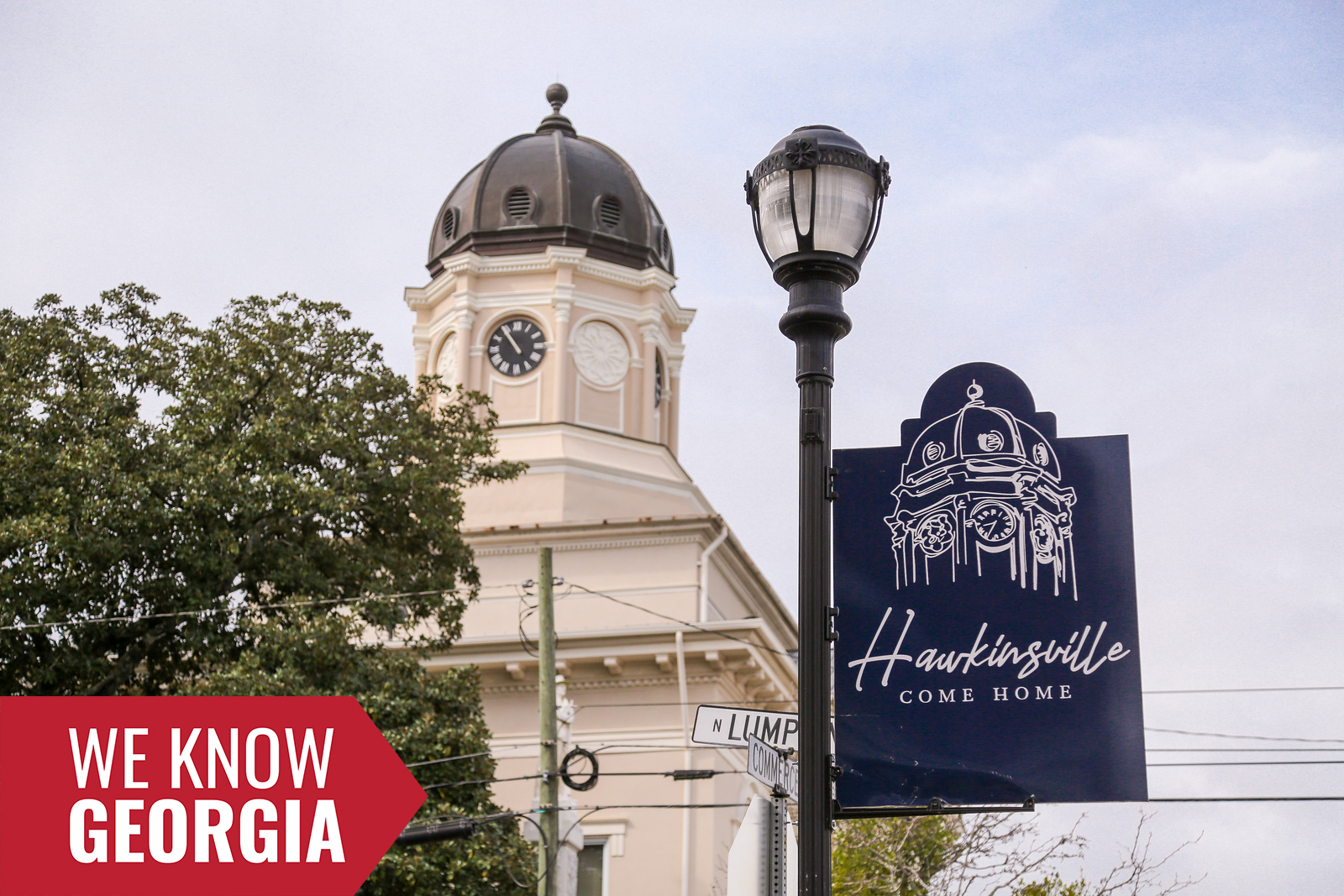
Writer: Margaret Blanchard
The University of Georgia Carl Vinson Institute of Government celebrated the successes of communities participating in its PROPEL (Planning Rural Opportunities for Prosperity and Economic Leadership) program at a recent workshop in Athens.
Members from Appling and Pulaski counties and the Lower Chattahoochee Council of Governments (Clay, Quitman, Randolph, and Stewart counties) gathered at the UGA Special Collections Libraries to share updates on their community and economic development efforts and lessons learned during the two-year program.
For many, the importance of educating and involving the public during the planning process was a key takeaway.
“Public understanding of what economic development is, plans that are being actively implemented, and current needs allows for more meaningful responses that provide focus and prevent overlap in efforts,” said Jamie McDonald, economic development director in Pulaski County.
The nationally recognized UGA PROPEL program provides rural communities with resources to support economic and community development strategies. Working with UGA faculty, staff and students, key stakeholders identify and execute a long-term vision for the community’s economic future. The program is made possible with funding from the U.S. Department of Agriculture and additional resources from the UGA Foundation.
The first five areas to join PROPEL in 2022 included Grady County, Pulaski County, Washington County, Appling County and the Lower Chattahoochee Joint Development Authority, which includes Clay, Quitman, Randolph and Stewart counties. Since then, six counties have been added to the program: Baldwin, Ben Hill and Burke counties joined in 2023 and Crisp, Emanuel and Marion started in January 2024.
The PROPEL program has continued to evolve as it has grown to include more resources and support for participating communities, said Greg Wilson, UGA Institute of Government faculty and program leader.
“What I love about PROPEL is its flexibility; each community uses it differently and finds creative ways to implement strategies. The communities learn from each other and we in turn learn from them,” he said.
While the local partners, resources and assets differ greatly across rural communities, several common focal areas emerged through the PROPEL process, including downtown development, youth and workforce development, small business and tourism, and community leadership.
In Pulaski County, the PROPEL team spent its time on revitalizing downtown Hawkinsville and the effort is paying off, with more than $2 million in private investment logged in 2023. Six buildings were purchased and another seven were renovated, including the Coke Lofts project, a mixed-use space with a large retail area and five residential units.
McDonald credits the PROPEL process with helping the community prioritize where it wanted to grow and setting a clear path for getting there.
“Programs like PROPEL help provide resources and assistance that rural communities wouldn’t be able to afford on their own. It also helps our small communities start planning for the future so that when large industries come knocking on the door, we’re ready,” McDonald said.
Linking rural communities with resources for economic development is a hallmark of PROPEL.
During the workshop, representatives from six state and federal funding agencies presented their respective grants and loan programs and tips for applying. Agencies included Georgia Department of Community Affairs, Georgia Council for the Arts, Georgia Department of Natural Resources, Georgia Environmental Finance Authority, US Economic Development Administration, and USDA Rural Development. The agency representatives also met face-to-face with communities in breakout sessions—a tremendous opportunity in a competitive fundraising environment.
“We spend the first year on strategic planning in PROPEL, but we know that locating funds can be difficult,” explained Rebecca Hunt, Institute of Government faculty. “That’s where we tap into our network and give communities access to resources that can help bring projects to fruition.”
Promoting and improving assets will continue to be a focus in the Lower Chattahoochee Council of Governments, which includes natural resources such as Providence Canyon and agritourism sites such as White Oak Pastures Farm. The communities are hoping to use knowledge gained through PROPEL to develop wayfinding signage, a regional brand/logo, and a website to engage people visiting the area.
Appling County also had tremendous success through PROPEL. One significant development was aligning curriculum at the new Southern Pines Career Academy with community demand.
“We wanted to use UGA’s resources to make sure we could meet the needs of our local industries, which includes agriculture and forestry goods. We didn’t want to turn out 100 cosmetologists if our community needed mechanics,” said Keri Orvin, city manager of Baxley.
Once PROPEL communities have completed the first part of the program, their connection with UGA and its partners is far from over.
“This program is just the start of a relationship we intend to nurture and guide as part of our commitment to serve the state. We look forward to continuing our work with rural communities and partners to build a stronger Georgia,” Wilson said.
ABOUT PROPEL
PROPEL provides rural communities with resources to support economic and community development strategies. Through the PROPEL model, UGA faculty, staff, and students work with government and business leaders and other key community stakeholders to identify and execute a long-term vision for the community’s economic future. The initiative includes the PROPEL Rural Scholars program, an experiential-learning opportunity for undergraduate students interested in rural Georgia to work alongside a PSO mentor and community leaders on PROPEL projects. The program is made possible with grants from the U.S. Department of Agriculture and additional resources from the UGA Foundation.